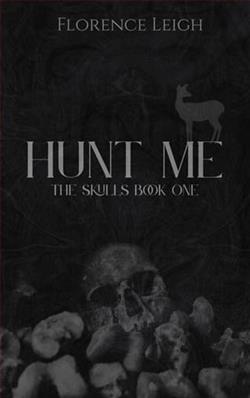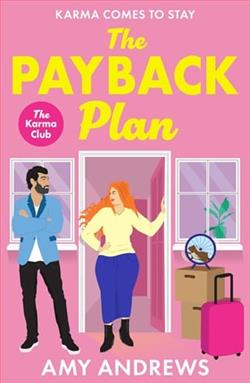Page 11 of The Woodcarver's Model
“Depends.”
“On what?”
“The question,” she snapped back.
Rob paused, then plunged onward. “Who would I talk to about what it’s like to live on the island?”
“Marsh Island?”
“The very one.”
“Fair question.” She looked him over as she pondered his query for quite a while, then said, “Well, most folks ain’t gonna give you the time o’ day. It ain’t that they’re not friendly. It’s just they’re suspicious of strangers. I’d look up the woodcarver. He knows the island and likes to talk. You can find him at tomorrow’s market. He’s got a booth there.”
“And where would I find the market?
“That’s two questions. Your fare only gets you one.”
* * * *
What Rob knew about Marsh Island could be easily summarised. It was the northern-most island in the archipelago at the south end of the Strait of Georgia. It was a little more than fifteen square miles in size, rising to almost eight hundred and fifty feet high at the summit of Mount Admiral. Its population was three hundred and seventy-three at the time of the last census. The economic engine of the island now lay in the garden market business—a reasonable amount of that being, until recently, the under-reported pot-growing industry—as well as craftsmen, writers and painters. The islanders were an extremely self-sufficient and private society who preferred to limit the influence of the outside world—except for tourists willing to leave their dollars in Marsh Islanders’ pockets.
Rob eased the Jeep down the ramp onto the tiny Marsh Island pier. First things first—he’d check into the island’s only hotel, The Marsh Inn. Their mascot was a little green fellow with antennae.How quaint.He should have enough time to scout out the island before dinner. Tomorrow he’d find the marketplace and the recommended woodcarver and make an appointment to interview him if he thought he’d be of any use.
There was no signage to show him the way into town. His Jeep’s GPS maps had nothing on this place, so he turned right. After driving for ten minutes, he noticed his mood lifting. The road, really no more than a lane and a half wide, was bordered by tall trees which formed a green canopy over his head. He opened the sunroof. The air smelled fresh and salty. The sunlight trickled through the overhead leaves. He stopped the Jeep and stepped out onto the road. He filled his lungs with air and he began to smile.
Rob reached back into the Jeep, pulled the camera out of his pack and, for five minutes, photographed the light-dappled road—a British country lane transported halfway ‘round the world.
Rob was so into his own moment and place in time, that he failed to sense the car coming up behind him being driven at high speed. The driver also failed to see him, or notice that his Jeep was not in motion, and had to slam on the brakes in order to avoid hitting the oblivious tourist. The air was filled with the sound of rubber sliding on gravel and a horn blaring. Rob’s utopic moment was over.
“What the hell are you doing?” yelled a tall, middle-aged woman as she leapt out of her car. “Are youtryingto get yourself killed?”
“I’m so sorry. I…” Rob excitedly pointed down the road. “This. Is. Heaven!” He got this way at times. A beautiful moment in nature brought out a child-like state of euphoria in him. He became a five-year-old at Christmas. That was what made him the eco-travel journalist he was.
“Come here. Let me show you.” He took her by the arm and placed her in front of the Jeep and proceeded to show her the images he had just captured on his camera. Some showed the contrast of brilliant green leaves against the pale blue sky above, while others revealed beams of light streaming through the foliage, spotting the multi-tonal shades of brown and grey of the road like a painter with a brush.
“My mother called them God’s eyelashes,” he told her.
She smiled, then said, “Well, you’ve certainly got an eye for nature, but you can’t just stop in the middle of the road. You could get yourself killed.”
Still scrolling through his pictures, he said, “It would almost be worth it to have seen something like this.”
“You aren’t from these parts, are you?”
“No, but I can see why people would want to be. I’m Rob, by the way. Rob Hanson,” he said, extending his hand.
She shook his hand and replied, “Sheila Marsh. So, what brings you to the island?”
“I’m an explorer, I guess. I go places I’ve never been—never dreamt of wanting to go—and I let people know that there’s a whole great big beautiful world out there waiting just for them.” He was beaming as he spoke.
“Well, Mr Rob Hanson, you go on exploring. Just don’t get yourself killed while doing it—even if you think those pictures are worth it.”
“I promise. Am I going the right way to get to the Marsh Inn?”
“The way you’re going, you’ll wind up in the cemetery.”
“I told you,” he said, smiling, “I promise to be more careful.”
“I appreciate that, but the direction you’re facing will take you to the cemetery…and my vet clinic. The Marsh Inn is back that way. Now if you don’t mind, I’ve got a ferret that needs attending to.”















